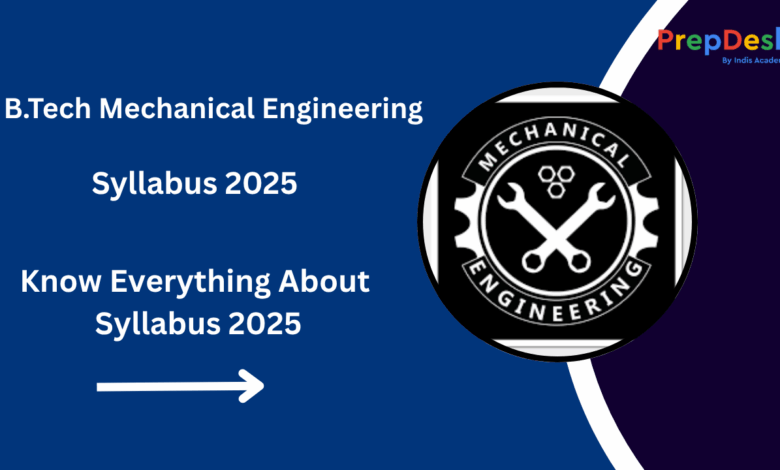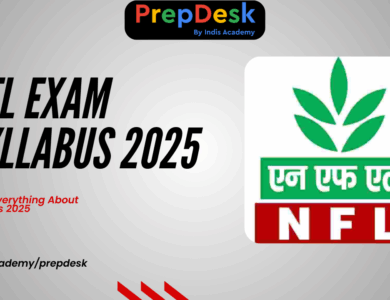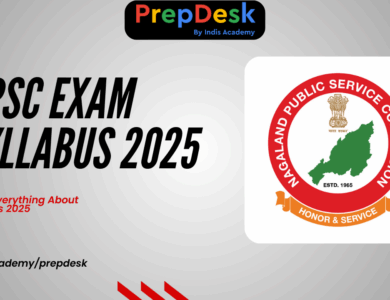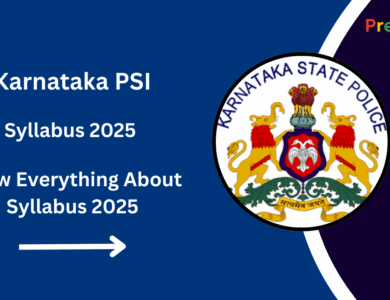B.Tech Mechanical Engineering Syllabus 2025 – Semester‑Wise Curriculum & Subjects
Explore the comprehensive B.Tech Mechanical Engineering syllabus (2025), covering 8 semesters of core subjects—Thermodynamics, Fluid Mechanics, Machine Design, IC Engines, CAD/CAM, Metallurgy and more—including electives via PDF download.

B.Tech in Mechanical Engineering is a 4-year undergraduate program that focuses on the design, development, and maintenance of mechanical systems. It is one of the oldest and most versatile branches of engineering. This discipline deals with core concepts like mechanics, thermodynamics, robotics, kinematics, structural analysis, and fluid mechanics.
The course is divided into 8 semesters, each comprising theoretical subjects, practical labs, and projects. This guide offers a semester-wise breakdown of the Mechanical Engineering syllabus, suitable for students following AICTE, IITs, NITs, and major state technical university guidelines.
B.Tech Mechanical Engineering – Exam Overview
| Course Name | B.Tech in Mechanical Engineering |
|---|---|
| Duration | 4 Years (8 Semesters) |
| Level | Undergraduate |
| Eligibility | 10+2 with Physics, Chemistry, Mathematics |
| Average Semester Credits | 20–24 per semester |
| Major Exams | JEE Main, JEE Advanced, State CETs |
| Regulatory Body | AICTE / UGC |
| Internship | Mandatory in Final Year |
| Project Work | Included in 7th and 8th Semesters |
Semester-Wise Mechanical Engineering Syllabus with Detailed Topics
Semester 1 – Foundation of Engineering
| Subject | Detailed Topics |
|---|---|
| Engineering Mathematics-I | Limits, continuity, differentiation, integration, matrix algebra, eigenvalues |
| Engineering Physics | Thermodynamics basics, wave optics, interference, diffraction, lasers, quantum physics |
| Basic Electrical Engineering | Ohm’s law, Kirchhoff’s laws, AC/DC circuits, transformers, basic electrical machines |
| Engineering Mechanics | Equilibrium of forces, friction, centroid, moment of inertia, trusses |
| Environmental Science | Ecosystems, biodiversity, sustainable development, pollution control |
| Workshop Practice | Fitting, carpentry, blacksmithing, welding, basic lathe operations |
Total Marks: 500
Semester 2 – Core Sciences + Programming
| Subject | Detailed Topics |
|---|---|
| Engineering Mathematics-II | Differential equations, Laplace transforms, vector calculus, Fourier series |
| Engineering Chemistry | Electrochemistry, polymers, water treatment, fuels, corrosion |
| Programming for Problem Solving | C programming: data types, loops, arrays, functions, recursion |
| Engineering Graphics | Orthographic projections, isometric drawing, section views, CAD introduction |
| Mechanics of Solids | Stress-strain relations, axial and shear forces, bending, torsion |
| Communication Skills | Technical writing, oral communication, report preparation |
Total Marks: 500
Semester 3 – Introduction to Mechanical Core
| Subject | Detailed Topics |
|---|---|
| Thermodynamics | Zeroth to third law, enthalpy, entropy, Carnot cycle, steam tables, thermodynamic processes |
| Fluid Mechanics | Properties of fluids, fluid statics, flow measurement, Bernoulli’s equation |
| Manufacturing Processes | Casting, forming, welding, machining, powder metallurgy |
| Engineering Materials | Crystal structure, heat treatment, steel, alloys, polymers, composites |
| Electrical Machines | DC machines, transformers, induction and synchronous motors |
Total Marks: 500
Semester 4 – Design & Analysis
| Subject | Detailed Topics |
|---|---|
| Applied Thermodynamics | Steam and gas power cycles, boilers, compressors, I.C. engines |
| Kinematics of Machines | Links and pairs, cam and follower, gear trains, mechanisms |
| Heat and Mass Transfer | Conduction (1D & 2D), convection (natural & forced), radiation, heat exchangers |
| Theory of Machines | Dynamics of cam-follower, balancing, gyroscope, flywheel |
| Machine Drawing & CAD | Assembly drawings, tolerances, GD&T, 2D/3D modeling using CAD software |
Total Marks: 500
Semester 5 – Advanced Design & Production
| Subject | Detailed Topics |
|---|---|
| Design of Machine Elements-I | Design of joints, shafts, keys, springs, stress & strain analysis |
| Dynamics of Machines | Static & dynamic balancing, vibrations, governors, gyroscopes |
| Fluid Machinery | Centrifugal and reciprocating pumps, turbines, hydraulic machines |
| Metrology and Instrumentation | Limits, fits, measurement instruments, comparators, surface finish, CMM |
| Industrial Engineering | Productivity, plant layout, work study, job evaluation |
Total Marks: 500
Semester 6 – Design, Refrigeration & Automation
| Subject | Detailed Topics |
|---|---|
| Design of Machine Elements-II | Gears, clutches, brakes, bearings, flywheels |
| Refrigeration & Air Conditioning | Vapour compression system, psychrometry, refrigeration cycles, cooling load calculations |
| Computer Aided Manufacturing (CAM) | CNC machines, part programming, G/M codes, robotics, automation systems |
| Operations Research | Linear programming, transportation models, assignment problems, queuing theory |
| Elective – I | Varies (e.g., Tribology, Advanced Manufacturing, Robotics, etc.) |
Total Marks: 500
Semester 7 – Electives + Project Work
| Subject | Detailed Topics |
|---|---|
| CAD/CAM | Computer-aided design, FEM basics, CNC manufacturing, virtual prototyping |
| Finite Element Method (FEM) | Discretization, stiffness matrix, thermal and structural analysis, software tools |
| Mechatronics | PLCs, sensors, actuators, microcontrollers, control systems |
| Elective – II | Varies (e.g., Advanced IC Engines, Nano Technology, Power Plant Engineering) |
| Project Work – I + Seminar | Mini-project development, research-based presentations |
Total Marks: 500
Semester 8 – Industry & Project Oriented
| Subject | Detailed Topics |
|---|---|
| Industrial Management | Supply chain, lean manufacturing, TQM, project management |
| Elective – III | Varies (e.g., Renewable Energy, Smart Materials, Design of Thermal Systems) |
| Internship/Industrial Training | Field training, report writing, supervisor evaluation |
| Project Phase – II | Final major project development, viva, documentation |
Total Marks: 500
Mechanical Engineering Syllabus PDF Download
Download the Mechanical Engineering Syllabus PDF
Click here to download full syllabus (PDF)
Specializations After Mechanical Engineering
| Specialization | Career Opportunities |
|---|---|
| Automobile Engineering | Automotive design, testing, vehicle manufacturing |
| Thermal Engineering | Power plants, HVAC, combustion, energy audits |
| Robotics & Mechatronics | Automation, control systems, AI-integrated machinery |
| Manufacturing Engineering | CNC, lean manufacturing, quality control |
| Aerospace Engineering | Aircraft, spacecraft design, aerodynamics, structural analysis |
Best Books for Mechanical Engineering
| Subject | Recommended Book & Author |
|---|---|
| Thermodynamics | Engineering Thermodynamics by P.K. Nag |
| Fluid Mechanics | Fluid Mechanics by R.K. Bansal |
| Strength of Materials | Strength of Materials by R.S. Khurmi |
| Theory of Machines | Theory of Machines by S.S. Rattan |
| Machine Design | Machine Design by V.B. Bhandari |
| Heat & Mass Transfer | Heat and Mass Transfer by Cengel & Ghajar |
| Manufacturing Processes | Production Technology by P.C. Sharma |
| CAD/CAM | CAD/CAM by Mikell Groover |
Preparation Tips for Mechanical Engineering Students
- Understand Fundamentals: Master core subjects like Thermodynamics, Mechanics, and Design.
- Solve Numericals Daily: Practice calculations and derivations from textbooks and PYQs.
- Hands-On Learning: Participate in workshops, labs, and internships.
- Use Simulation Software: Learn SolidWorks, AutoCAD, ANSYS, MATLAB, etc.
- Prepare for Competitive Exams: Start early for GATE, IES, SSC JE, PSU exams.
- Work on Projects: Build a strong final-year project that demonstrates real-world application.
- Stay Updated: Read industry journals like ASME, IEEE for trends and research.
Career Opportunities After Mechanical Engineering
| Career Path | Examples |
|---|---|
| Public Sector (PSUs) | BHEL, GAIL, IOCL, ONGC, ISRO, DRDO |
| Private Sector | Tata Motors, L&T, Mahindra, GE, Bosch |
| Government Exams | GATE, IES, SSC JE, State PSC, RRB |
| Entrepreneurship | Start your own design/manufacturing firm |
| Higher Studies | M.Tech, MBA, MS (abroad), Ph.D. |
Conclusion
Mechanical Engineering is a power-packed course that equips you with analytical, practical, and design skills. With a well-divided syllabus spanning thermal, fluid, mechanical systems, and design sciences, this field opens doors to industries ranging from aerospace to AI-driven manufacturing.
By following this semester-wise mechanical engineering syllabus, referring to standard books, and practicing rigorously, you can master both academic and industrial aspects of mechanical systems.





